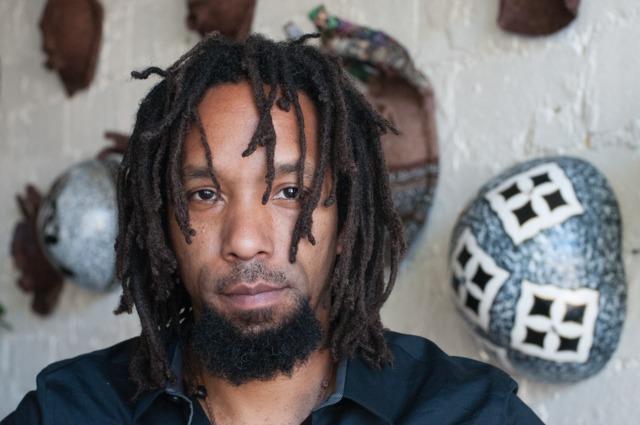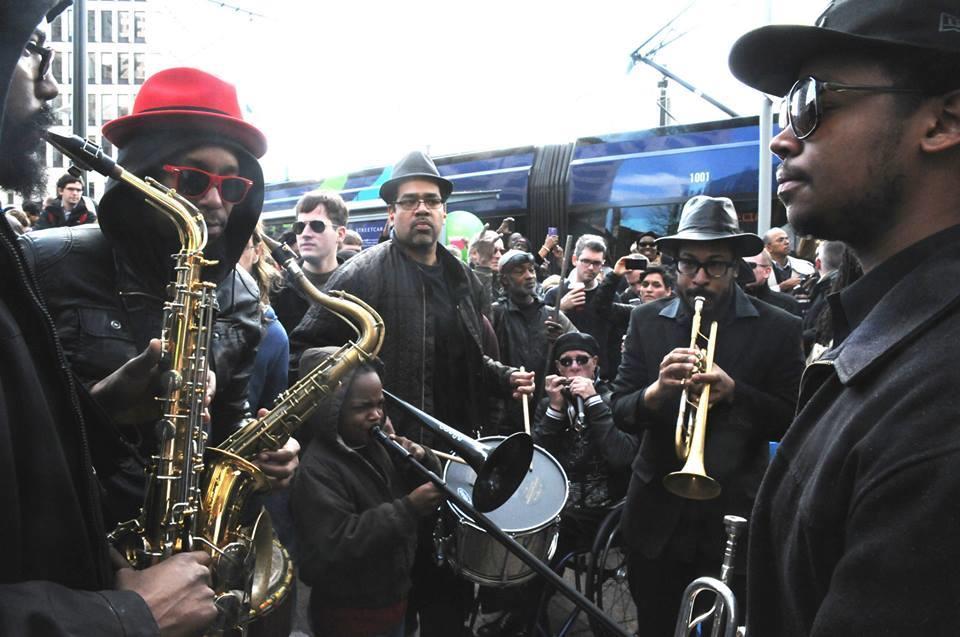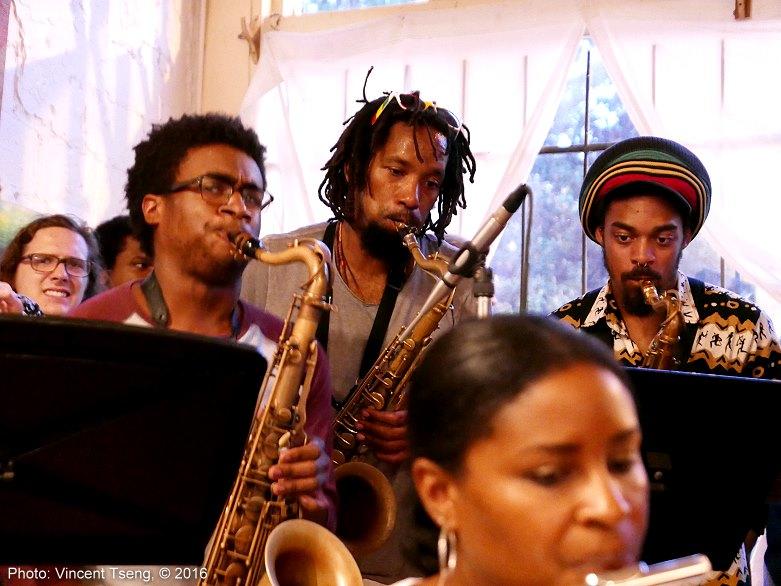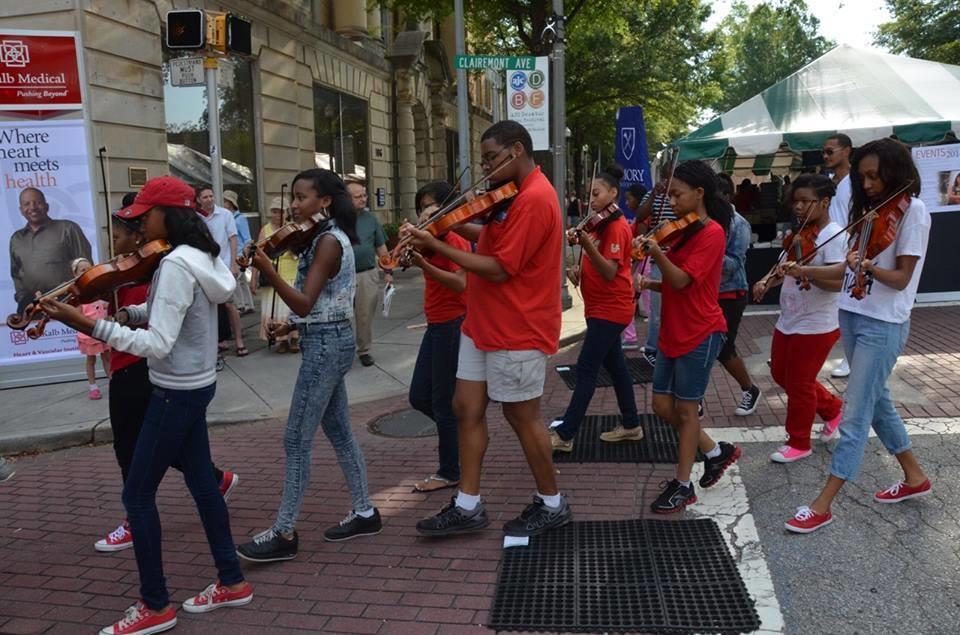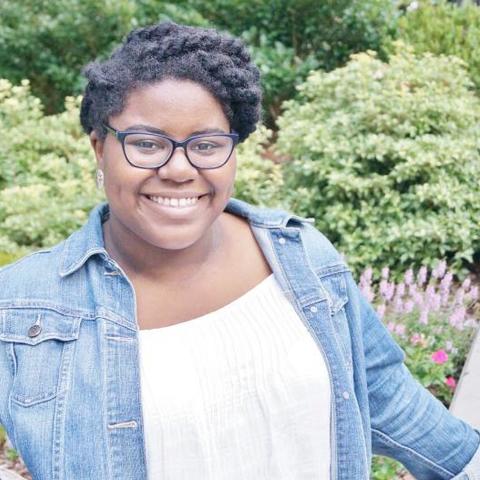Section Branding
Header Content
Atlanta Artist, Musician Wants To Preserve West End’s Culture
Primary Content
One of Atlanta’s most historic neighborhoods is getting a major facelift with development and structural overhauls, but Kebbi Williams is resisting upgrades from developers who miss the mark on integrity.
The West End neighborhood’s 185-year-old history is considered a hub for Atlanta’s culture. It served as a battleground for the civil rights movement, was a home to some of the city’s most influential figures and sits adjacent to the Atlanta University Center.
But within its history, West End experienced age and depreciation through some of America’s most divisive moments. Following the civil rights movement, the racial makeup of the neighborhood changed. Black families moved in, while white residents migrated to northern Atlanta suburbs.
Now an opportunity, the West End community is recovering from recession, foreclosures and other economic decay. The Atlanta Beltline weaved through in 2017 and developers are picking up the pace to revitalize the iconic neighborhood.
Williams wants to make sure the culture of the West End is preserved.
“Martin Luther King was walking these streets,” he said. “I mean, all the civil rights people, the colleges, the black colleges, culture people.”
Williams is no stranger to the culture in Atlanta. As a tenor saxophonist, he grew up in the city and went to Howard University to pursue an education in music. He later toured the world with Grammy Award-winning bands such as OutKast and even earned a Grammy himself.
Before coming back home to Atlanta, he didn’t consider himself an “advocate of the arts.” It wasn’t until he won an artist grant from the city that he would start a movement on the streets.
At first, he wanted it to be a festival gathering local and international acts and performers that paraded Atlanta blocks with music, but due to financial constraints, it soon became a bigger project including children from the city.
“A magical, amazing thing happened,” Williams said. “The kids learned. They loved us.”
Children were performing with and learning from award-winning artists from around the world.
Since that initial community concert nearly a decade ago, Williams turned it into Music in the Park, a nonprofit that empowers children in music and performing arts.
Williams’ empowerment for children didn’t stop there. Three years ago, he turned an empty tattoo shop into Gallery 992, an art space that often hosts creative classes for children who want to learn about music, painting, dance or even chess.
So when Williams heard a rumor that Fulton County was considering shutting down the West End Performing Arts Center, he did what he thought was best — played his saxophone in front of Fulton County commissioners during their first commissioner meeting of the year.
“The West End doesn't need to lose culture or lose any[thing],” Williams said. “We're so magical and we just need support.”
Throughout the life of Music in the Park and Gallery 992, Williams partnered with organizations that aren’t so familiar to the West End neighborhood such as Atlanta Streets Alive and the BeltLine to sustain West End’s cultural legacy.
When Williams collaborated with the BeltLine, he noticed that their vision for West End was unfamiliar to the community.
“It was stuff that nobody in our community could appreciate,” he said.
Though the change in artistic scenery may have seemed like a benign move, Williams felt the change would be detrimental to the neighborhood and ultimately decided to create art for both new and old audiences.
“I have no problem with new people coming to neighborhoods,” he said. “It's just getting rid of the old is the problem as if we're not gold and we are gold.”
As Atlanta inevitably changes and grows, Williams is a proponent for native communities to stay ahead of the curve for smoother transitions. By participating in local politics and engaging with local arts, he said development would feel less threatening.
And when the local communities’ financial support falls short, Williams said the government should fulfill that need.
“There's millions of dollars for the arts given to the city of Atlanta and we need that,” he said. “Organizations like myself and other organizations— not just music and art— we need the help.”
Despite the obstacles, Willams will continue Music in the Park and offering Gallery 992 to the West End neighborhood because he knows art is important.
“We're kind of like a Westside arts organization,” he said. “We're for everyone. We're for the world.”
